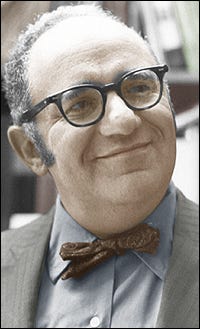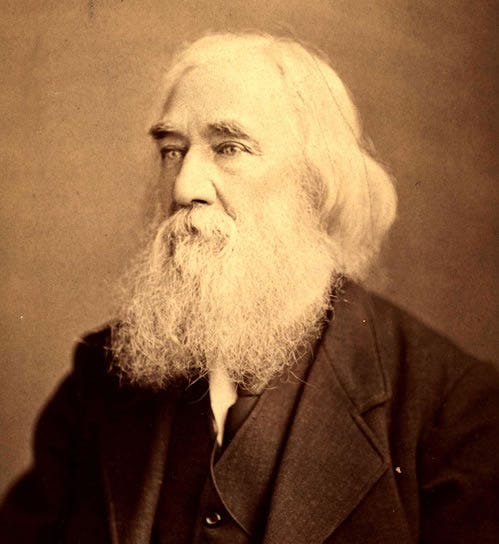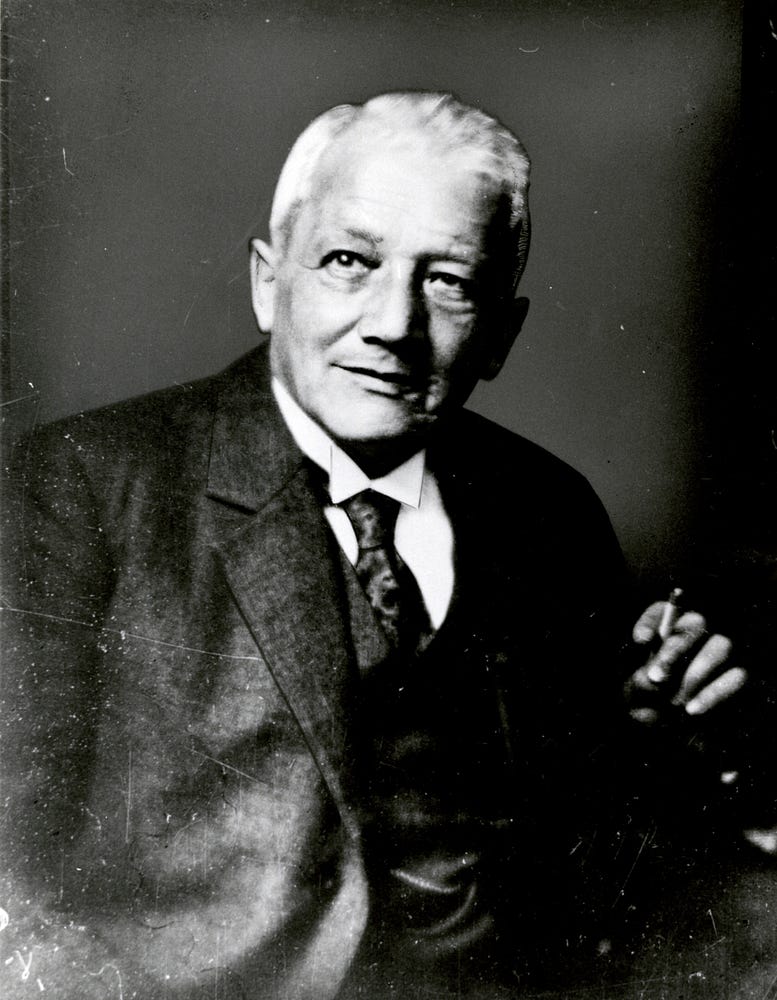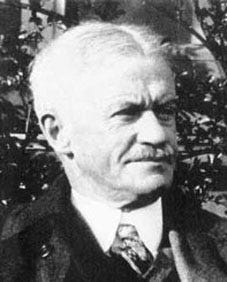Here is an alliterated definition of the state:
Power over persons and plunder of property
privileged by a plenary pardon, popularly provided
to a pack of predators preying on producers and
prudentially progressing into provident parasites and potentates
Let’s unpack this, and see how each part of this definition refers to a basic concept in libertarian state analysis.
Power over Persons and Plunder against Property
As Hans Hermann Hoppe wrote, the state is an “institution built on aggressive violence.” Aggression is the violation of an individual’s right to self-ownership or his property rights over external resources.

Hans-Hermann Hoppe
Self-ownership refers to the individual’s right to have exclusive disposal over his own person, or body. Under the classical liberal rights framework of “life, liberty, and property,” this refers to the rights of life and liberty. An individual’s self-ownership is violated, and therefore aggression occurs, when someone else exercisespower over his person, by destroying his person (violating his right to life, e.g. murder) or otherwise commandeering his person (violating his right liberty, e.g. assault, kidnapping, enslavement, etc).
Property (private property) refers to an individual’s right to have exclusive disposal over any resource he has either originally appropriated (homesteaded) or received in voluntary transfer from a previous owner. Property is violated, and therefore aggression occurs, when someone else plunders an owned resource, by destroying (e.g. vandalism) or taking (e.g. theft) it against the owner’s will.

Murray N. Rothbard
The state regularly commits acts of aggression, or crimes, and drape them with euphemism: including murder (“war,” etc), kidnapping (“incarceration,” etc), enslavement (“conscription,” etc), and theft (“taxation,” etc).
The essentially criminal nature of the state has been noted by Murray Rothbard who called the state, “a bandit gang writ large,” and Lysander Spooner, who wrote:
“The fact is that the government, like a highwayman, says to a man: Your money, or your life. And many, if not most, taxes are paid under the compulsion of that threat.
The government does not, indeed, waylay a man in a lonely place, spring upon him from the road side, and, holding a pistol to his head, proceed to rifle his pockets. But the robbery is none the less a robbery on that account”
Privileged by a Plenary Pardon, Popularly Provided
However the state is not a common criminal, but a decidedly uncommon one. It is fundamentally different from the common criminal in that the majority of its subject populace sees its acts of aggression as uniquely legitimate. They privilege agents of the state with a sweeping moral “pass,” or pardon, for acts which, if committed by anybody else, would be publicly denounced as crimes. For more on this, see my essays, “The Ring of Impunity,” and “The State Lives in the Minds of its Victims.”

Lysander Spooner
This makes state criminals fundamentally more pernicious than common criminals. As Rothbard argued, “private crime is, at best, sporadic and uncertain,” and its “lifeline can be cut at any time by the resistance of the victims.” The state, on the other hand, “provides a legal, orderly, systematic channel” for plunder. Its lifeline is much harder to cut by resistance, because its Stockholm Syndrome-afflicted victims are much less likely to even offer any.
The state is also fundamentally more “dastardly and shameful” than common criminals, as vividly argued by Spooner:
“The highwayman takes solely upon himself the responsibility, danger, and crime of his own act. He does not pretend that he has any rightful claim to your money, or that he intends to use it for your own benefit. He does not pretend to be anything but a robber. He has not acquired impudence enough to profess to be merely a ‘protector,’ and that he takes men’s money against their will, merely to enable him to ‘protect’ those infatuated travellers, who feel perfectly able to protect themselves, or do not appreciate his peculiar system of protection. He is too sensible a man to make such professions as these. Furthermore, having taken your money, he leaves you, as you wish him to do. He does not persist in following you on the road, against your will; assuming to be your rightful ‘sovereign,’ on account of the ‘protection’ he affords you. He does not keep ‘protecting’ you, by commanding you to bow down and serve him; by requiring you to do this, and forbidding you to do that; by robbing you of more money as often as he finds it for his interest or pleasure to do so; and by branding you as a rebel, a traitor, and an enemy to your country, and shooting you down without mercy, if you dispute his authority, or resist his demands. He is too much of a gentleman to be guilty of such impostures, and insults, and villanies as these. In short, he does not, in addition to robbing you, attempt to make you either his dupe or his slave.”
To a Pack of Predators Preying on Producers
This line harkens to “libertarian class analysis,” which goes back to the French classical liberal “Industrialist” thinkers Charles Comte and Charles Dunoyer. Ralph Raico summarized their analysis as follows:
“In any given society, a sharp distinction may be drawn between those who live by plunder and those who live by production. The first are characterized in several ways by Comte and Dunoyer; they are ‘the idle,’ ‘the devouring,’ and ‘the hornets.’ The second, are termed, among other things, ‘the industrious’ and ‘the bees.’ The attempt to live without producing is to live ‘as savages.’ The producers are ‘the civilized men.’
Cultural evolution has been such that whole societies may be designated as primarily plundering and idle, or as productive and industrious. Industrialism is thus not only an analysis of social dynamics, but also a theory of historical development. Indeed, much of Industrialist theory is embedded in its account of historical evolution.
The history of all hitherto existing society is the history of struggles between the plundering and the producing classes.”

Charles Dunoyer
Living by production is self-sustaining. On the other hand, living by plunder (aggression), as the state does, is essentially predatory. Franz Oppenheimer called the former “the economic means” of acquiring wealth and the latter “the political means.”
As Rothbard put it,
“The political means… requires previous production for the exploiters to confiscate, and it subtracts from instead of adding to the total production in society.”
The most simple kind of human predation can be seen in the ravaging, barbarian hordes of past ages that descended upon settled, civilized communities, massacring most of the inhabitants, carting off all of the portable wealth, and burning everything else to the ground.
Progressing to Provident Parasites and Potentates
But such unbridled predation is short-sighted, for it leaves its prey too devastated to resume production. It is more provident for a horde to observe some restraint in its ravages, which allows for some economic recovery, so it can return again and again for fresh loot. As Oppenheimer put it:
“…it begins to dawn on the consciousness of the wild herdsman that a murdered peasant can no longer plow, and that a fruit tree hacked down will no longer bear. In his own interest, then, wherever it is possible, he lets the peasant live and the tree stand.”

Franz Oppenheimer
Thus does the predator evolve into a parasite. A further step along this path is when the productive prey regularly deliver loot to the plundering predators as tribute, obviating the costly arbitrament of battle. Next it may be prudential for the conquerors to settle in with and live among their prey as rulers. Thus the predator becomes the parasite becomes the potentate.
The above, in a nutshell, is Oppenheimer’s “conquest theory of state formation,” which he illustrated with copious historical examples in his classic book, The State.
In a Penal Priesthood
Predators don’t like competition from other predators. So a state naturally tries to establish for itself an exclusive territorial priesthood of power, or “monopoly of crime,” as Albert Jay Nock put it, excluding all other states as well as common criminals from exploiting its subjects, just as a farmer would prevent another farmer from butchering or milking his cow.
“[The state] forbids private murder, but itself organizes murder on a colossal scale. It punishes private theft, but itself lays unscrupulous hands on anything it wants, whether the property of citizen or of alien.”
 The state’s self-interested practice of punishing rival aggressors can easily be mistaken for the state protecting its subjects for their own sake.
The state’s self-interested practice of punishing rival aggressors can easily be mistaken for the state protecting its subjects for their own sake.
Propped up by Propaganda
The state happily exploits that source of confusion, posing as the ultimate protector of the lives, liberties, and property of its subjects. It misleads the public into getting the nature and function of the state precisely backwards; to believe that the state only taxes so it can protect, when in reality only (ineptly) protects so it can tax. This is the chief myth that the state propagates to cover up its criminality.
And it this and other myths which are the basis for the “privilege of plenary pardon, publicly provided” discussed above. It is myths about the benevolent nature and societal necessity of the state that cause people to grant state agents a special dispensation to commit acts of aggression with impunity. Such acts are no longer considered “crimes” so long as they are done “under color of authority.” This is how plunder is sublimated into tribute, and then further sublimated into taxation.
Without this myth-made special dispensation, a state’s power would collapse. In fact, it would no longer even essentially be a state, but rather just relatively small (since sustainable parasitic states must be much smaller than their productive host populations) band of common (if heavily armed and highly organized) criminals. The people would make short work of such gangsters.
So myth-propagation is a vital prop for the state. That is why, as Rothbardtaught, potentates have always partnered with intellectuals, like priests, academics, journalists, and schoolteachers to brainwash and bamboozle the public into seeing the state as legitimate.
And that is why the chief task of libertarians is to debunk statist myths. Remove its props, and a structure will crumble under its own weight.
These 22 P’s of the state can serve as a handy mnemonic device for recalling some of the most profound contributions to the analysis of the state by some great thinkers: Rothbard, Spooner, Nock, Hoppe, Oppenheimer, Comte, and Dunoyer.
Source Article from http://www.lewrockwell.com/2014/12/dan-sanchez/judge-the-feds-by-their-own-standards/
Views: 0
 RSS Feed
RSS Feed

















 December 31st, 2014
December 31st, 2014  Peter Nolan
Peter Nolan  Posted in
Posted in 
















